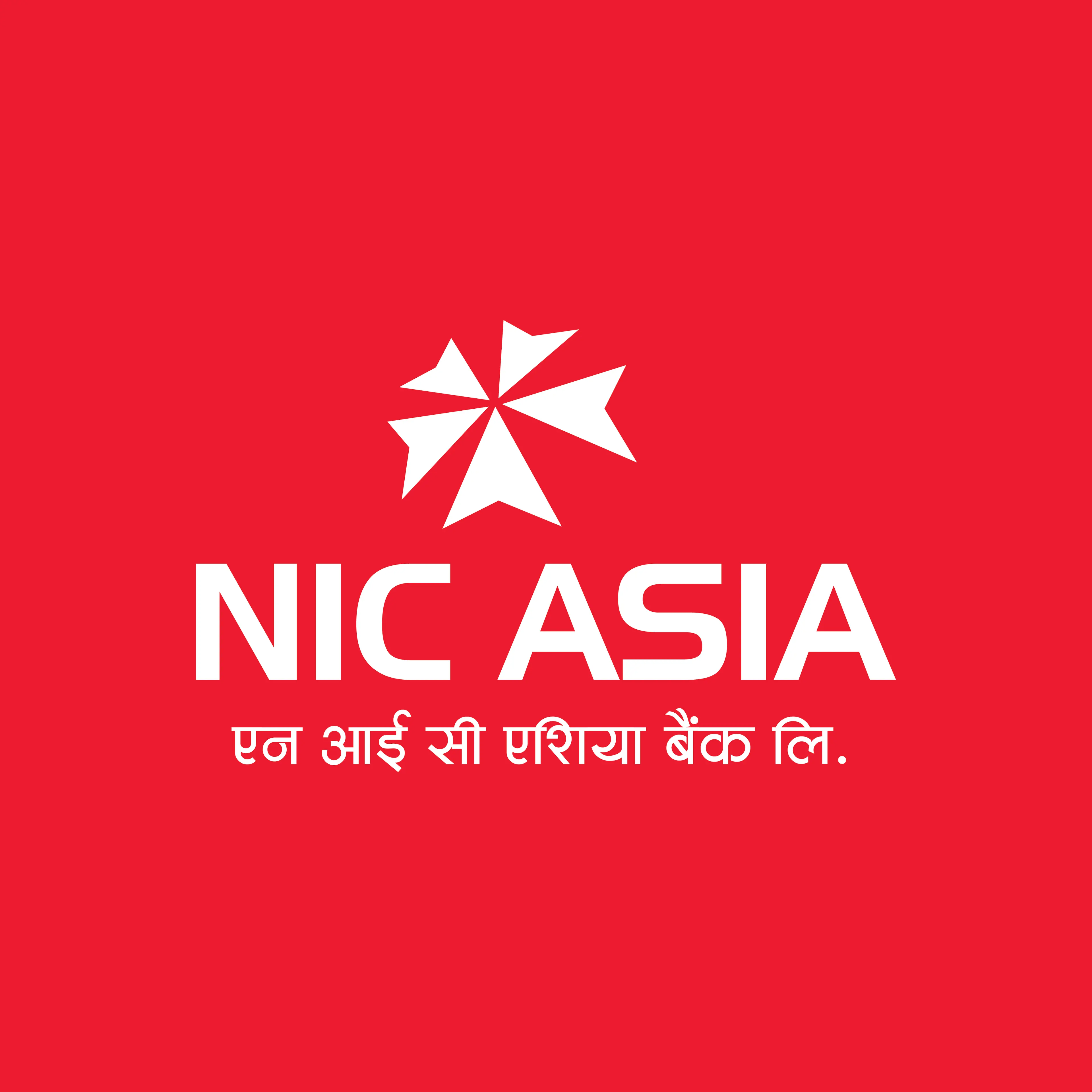Dolakha IPM Success Story
2024-07-22
Kalinchowk Rural Municipality Ward No. 9 is predominantly inhabited by the Thami Indigenous Group, who make up more than 90% of the village's population. The Thami Community relies on agriculture for their livelihood, cultivating crops and rearing animals for sustenance. However, despite their dependence on farming, they do not own the land they work on. Instead, the land is owned by Non-Indigenous People who lease it to the Thami Community. Under this arrangement, the Thami must give half of their harvest to the landowners. The Thami Community faces significant challenges due to their agricultural obligations. They are required to give half of their harvest to the landowner, leaving them with only enough crops to sustain themselves for about three months. This precarious situation has made it difficult for the Thami people to achieve food security and maintain their livelihoods.
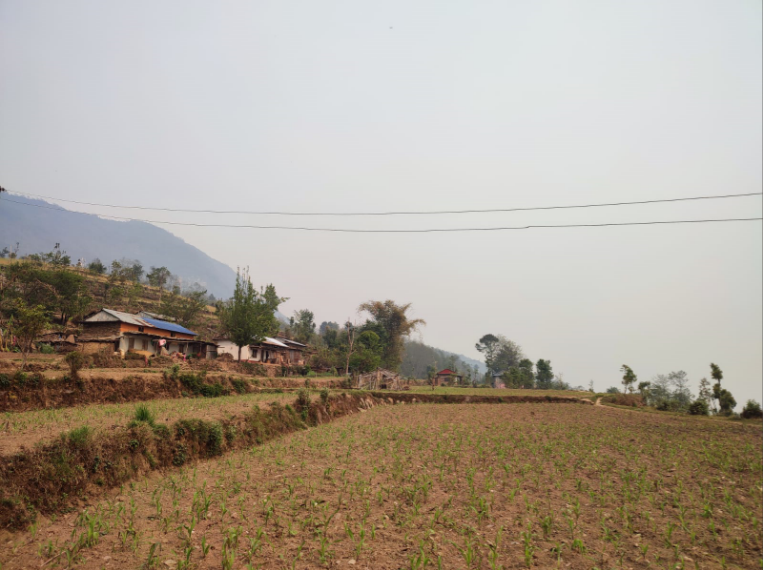 Photo Description: Kalinchowk Rural Municipality Ward No.9
Photo Description: Kalinchowk Rural Municipality Ward No.9
Recognizing the gravity of this issue, the National Indigenous Women Forum (NIWF) stepped in to provide support in 2017. NIWF designed and conducted a 20-week intensive training program specifically tailored to the needs and circumstances of the Thami Women. This training, known as the Integrated Pest Management (IMP) training, aimed to empower the Thami Women with the knowledge and skills needed to enhance their agricultural productivity and sustainability.
The IMP training covered a wide range of topics, including modern farming techniques, crop diversification, and sustainable agricultural practices. A significant focus was placed on teaching the Thami Women how to grow vegetables during the off-season, which is a critical period when food supplies typically dwindle. Additionally, the training emphasized the importance of avoiding chemical fertilizers and adopting organic farming methods, which not only improve soil health but also produce healthier crops. Throughout the 20-week program, the Thami Women were provided with hands-on training and practical demonstrations. They learned how to prepare organic compost, manage pests using natural methods, and implement efficient irrigation techniques. The training also included sessions on market access and financial management, enabling the Women to sell their surplus produce and generate additional income.
The impact of the IMP training has been transformative for the Thami Community. By producing vegetables in the off-season and adopting sustainable farming practices, the Thami Women have significantly improved their food security and overall well-being. They are now able to sustain themselves throughout the year, reducing their dependence on the landowner and enhancing their economic independence.
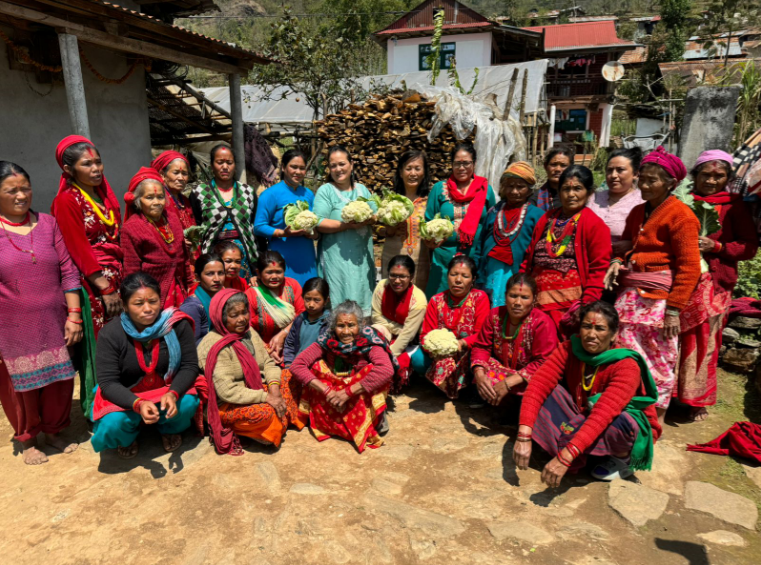
Photo Description: Thami Women and NIWF's Chair and Vice Chair group photo
The Women after receiving IPM training registered their group under the name “Thami Mahila Krishak Samuha” at their Rural Municipality. They collect Rs. 50 each monthly as savings. This savings fund not only fosters financial security but also enables the group to invest in further agricultural initiatives and community development projects. To further enhance their knowledge and empower them, NIWF also provided a 2-day Advanced Climate Smart Farming and Management Training for the Thami women. This supplementary training focused on advanced techniques for adapting to climate change, ensuring that their farming practices remain sustainable and resilient in the face of environmental challenges.
The success of the IMP and Advanced Climate Smart Farming training programs is evident in the thriving vegetable gardens and the empowered Women of the Thami Community. With their newfound skills and knowledge, these Women have become agents of change, driving their community towards a more secure and prosperous future. NIWF’s initiatives have not only provided the Thami Women with essential agricultural skills but have also instilled a sense of hope and resilience within the community. Through sustainable farming practices and off-season vegetable production, the Thami Community has made remarkable strides towards achieving food security and improving their livelihoods.
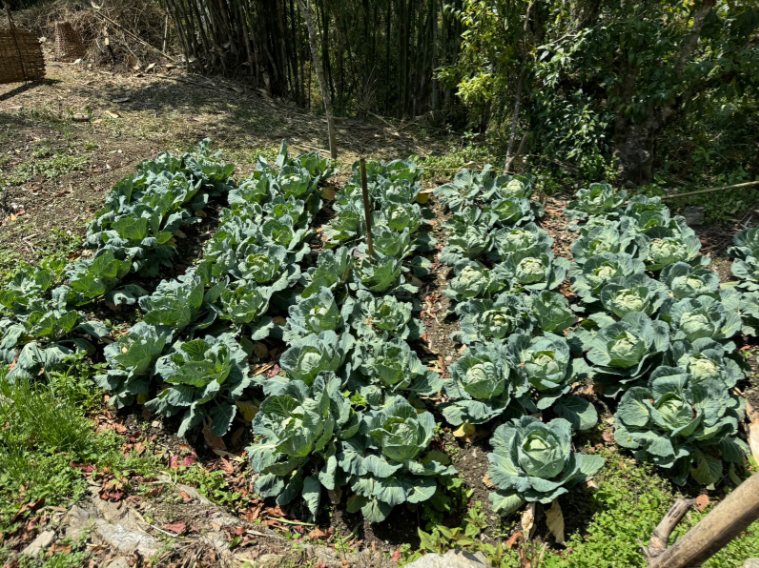 Photo Description: Cabbage farming by Thami Women
Photo Description: Cabbage farming by Thami Women
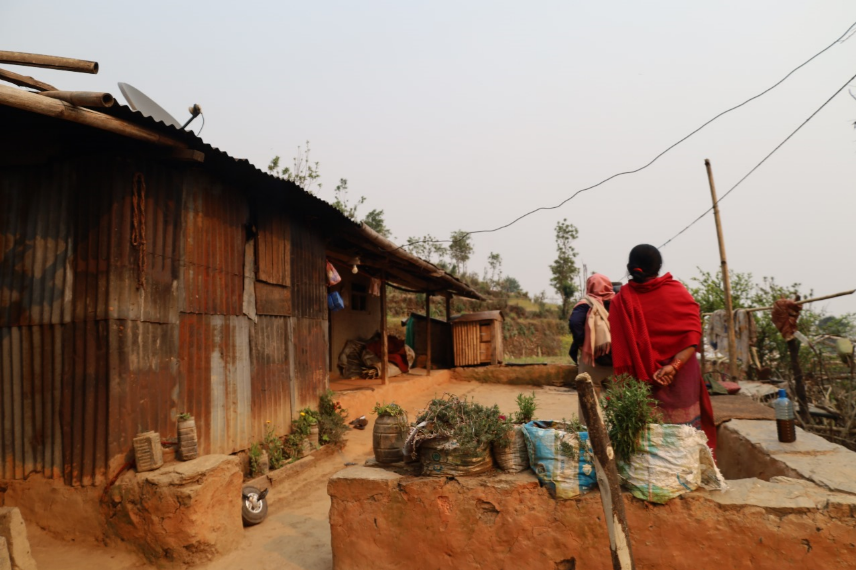
 Photo Description: Kalinchowk Rural Municipality Ward No.9
Photo Description: Kalinchowk Rural Municipality Ward No.9
 Photo Description: Cabbage farming by Thami Women
Photo Description: Cabbage farming by Thami Women
